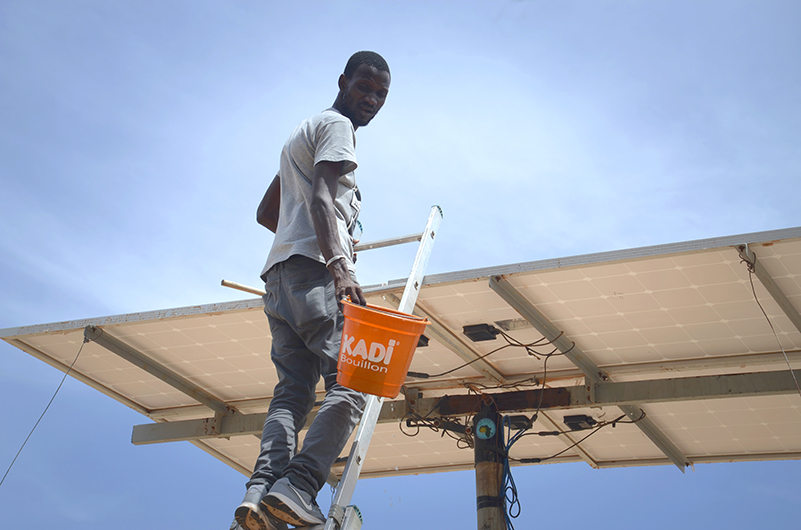Across rural Senegal, many people use fossil fuels, coal and wood-burning open fires, as well as other harmful energies in their communities. CREATE! is addressing these issues through an integrated approach to energy conservation. What is an advantage to alternative energy technology?
In rural areas, most cooking is traditionally done over open fires and electricity is usually generated through nonrenewable and costly diesel fuel. This makes renewable energy particularly important to CREATE!‘s project sectors. One of the main advantages of alternative energy technology is that people can meet their basic needs and more while also benefitting their environment. By implementing sustainable solutions to challenges, communities develop more opportunities to design healthier livelihoods.
What is an Advantage to Alternative Energy Technology?
CREATE!’s two main alternative energy projects are solar-powered water pumps and improved cookstoves. These programs replace harmful and nonrenewable technologies.
Solar-Powered Water Pumps
The short rainy season in Senegal limits communities’ water supply. As a result, many people resort to buying water outside of their villages since the tap water system is salty. When the government installed these tap systems, communities abandoned their wells. However, these wells still hold untapped potential.
CREATE! aims to assist communities in gaining access to this clean water through the use of a water pump. To attain this water, we use solar-powered pumps instead of costly fossil fuel pumps. The sun is an abundant source of energy in rural Senegal and will power a pump year-round. Having water year-round opens doors to new possibilities in rural communities such as year-round gardens and tree-planting campaigns.
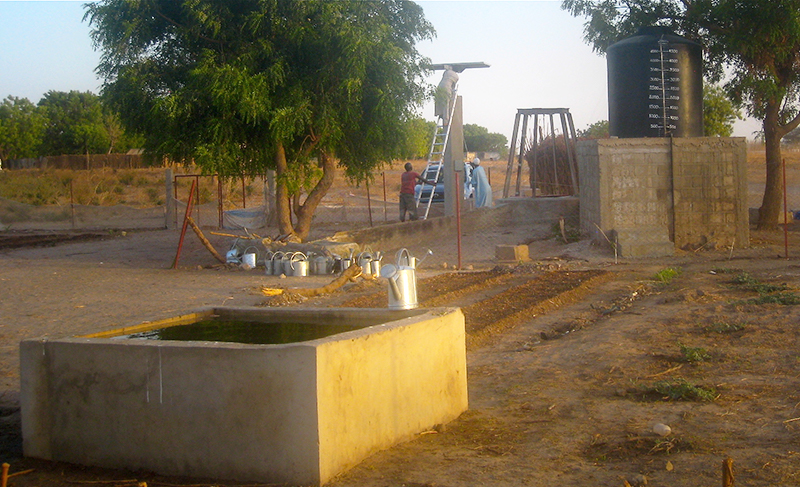
CREATE!‘s solar-powered water system: Using solar energy, water is pumped from the well into the elevated black reservoir for household use. From the reservoir, a gravity-fed irrigation system moves water into the basin for agriculture use.
Improved Cookstoves
Many women in rural Senegal use traditional open fires to cook meals. Open fires lose heat quickly and require a lot of wood. However, CREATE!’s improved cookstoves use approximately 60-70% less firewood. CREATE! trains communities on how to build improved cookstoves, so that they can sustainably replace traditional open fires.
Meet Ndeye Thiam, a mother of six from the village of Ouarkhokh. Thiam has two cookstoves in her kitchen that she built herself after training with CREATE!’s technicians. “I used a lot of wood when I cooked with the old fire, but with the improved cookstove I use four pieces of wood for my daily meal,” She tells us.
Improved Cookstoves are Free!
Communities make improved cookstoves from clay, sand, dry grass, and water. This means that it doesn’t cost community members to switch to alternative energy in their kitchens! “The improved cookstove materials are free and available in the community, so we don’t spend any money for having it,” Thiam explains.
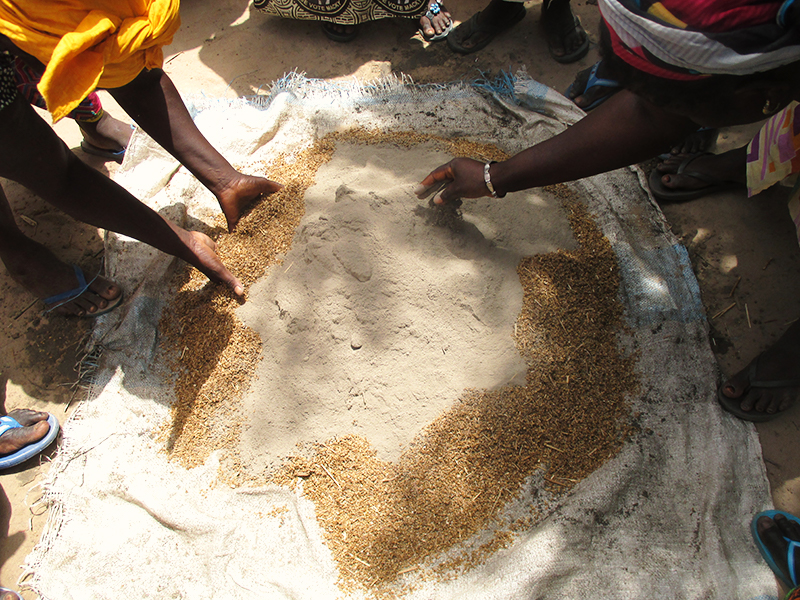
Improved cookstoves are made from clay, sand, dry grass, and water.
Improving Health & Safety
In Senegal, access to available and affordable health care is often limited in rural areas. This is why it’s crucial for people to ensure their safety and food security, especially with growing children.
Solar-Powered Water Pumps
With access to year-round water from solar-powered pumps, communities can improve their food security and overall health. Before Thiam’s community had year-round access to water, they depended on the 3-4-month rainy season to grow crops. This limited the amount of vegetables families could eat and sell. As a mother of six, it was difficult for Thiam to meet all of her children’s needs. “Before, I used to spend a lot of money on buying vegetables, but I could never get enough,” She recalls. Today, Thiam’s village cultivates a community garden with year-round water from their well. “Today, my family eats lots of vegetables!”
Improved Cookstoves
Improved cookstoves provide more safety in the kitchen than traditional open fires. “A few years ago, many homes caught fire in the village because of the open fires. There is more security in the community since we have the improved cookstove,” Thiam describes. With outer protective walls, improved cookstoves shelter the fire and are safer for wandering children and animals. Improved cookstoves are also built to create less smoke in the kitchen, thus limiting respiratory illnesses.
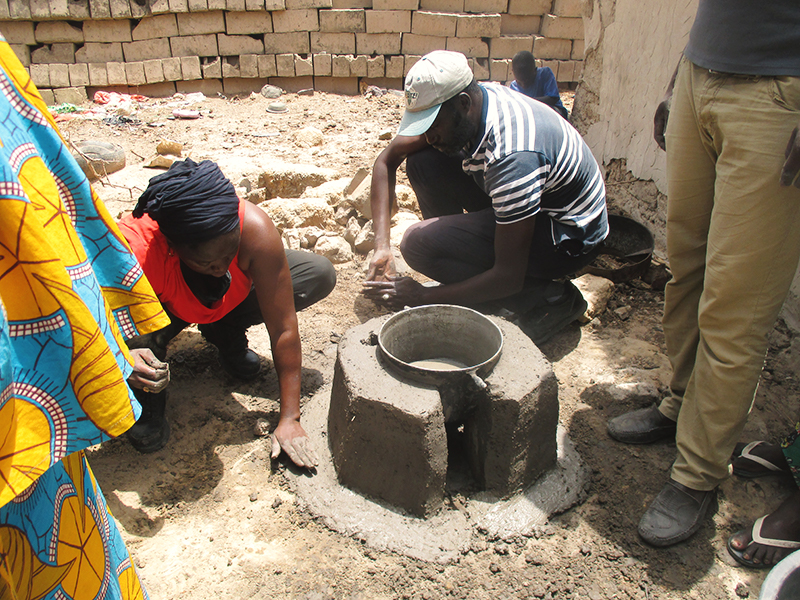
CREATE! field technicians Diouf and Nogaye demonstrate how to build an improved cookstove.
Benefitting Future Generations
Part of the success of our partner communities comes from passing on new knowledge to the next generation. When we partner with a new community, we are not just teaching adults new ways to develop sustainable and self-sufficient lifestyles today. Children are the future of the communities. We are working with them to shape the entire future of their community, as these parents pass on their ways of life for generations to come.
Solar-Powered Water Pumps
By using solar-powered water pumps in wells, people can develop food security and income-generating opportunities from their village. Women are selling excess vegetables from community gardens to generate income for their families. This means that people no longer need to migrate in search of work. “There are more activities in the community. Women no longer need to leave their families to find work outside the village.” Thiam tells us.
Improved Cookstoves
Thiam recalls the challenges she faced while cooking for her family using an open fire just like her mother, and the many generations before her. However, after learning to build her own cookstove, Thiam can pass on this new knowledge to her children. Now, her children can continue to have safer and cleaner kitchens in their homes. Not only that, but her children can enjoy a healthier, bountiful environment with more trees.
The Future of Alternative Technology in Rural Senegal
Additionally, CREATE! has long term goals to implement other renewable energy technologies in partner villages according to their needs, including solar-powered lighting and water heating systems. CREATE! has already installed a passive solar water heater in the village of Gagnick Mack. This solar water heater provides hot water for births at the local community health center.
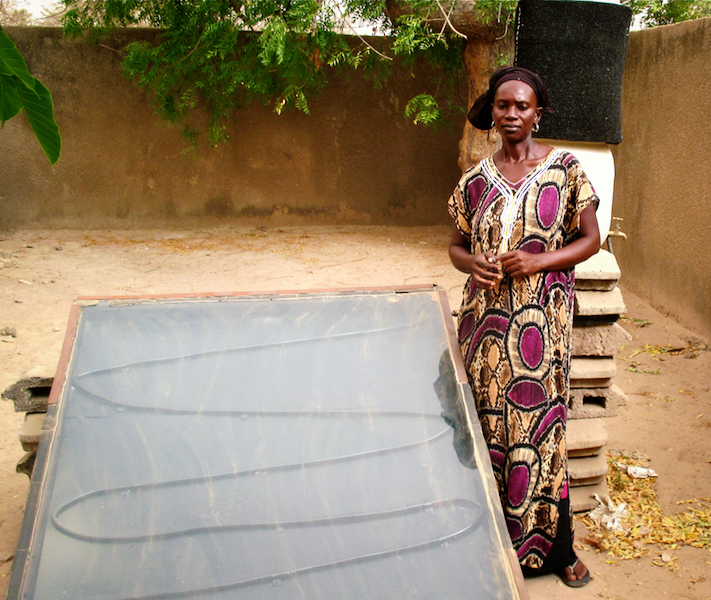
Solar water heater in the village of Gagnick Mack.
So, what is an advantage to alternative energy technology? Alternative energy meets basic human needs and more while simultaneously supporting the environment. Our worldwide goal should be to sustain ourselves and future generations to come while enriching our environments. And, what better way to do so through the use of alternative and renewable energy!

